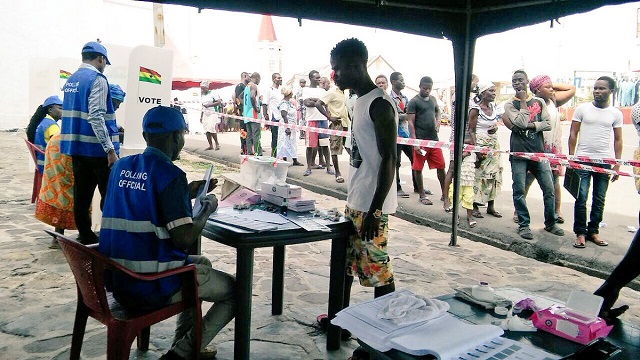
Accra, Ghana | AFP |
Ghana is a resource-rich west African country where worries about the economy are set to dominate Wednesday’s presidential election.
Major producer of cocoa, gold
Ghana is the world’s second biggest producer of cocoa after Ivory Coast and Africa’s second biggest gold producer after South Africa. Those commodities are its biggest exports, followed by diamonds, bauxite and manganese.
In December 2010, Ghana also started pumping crude oil from an offshore field discovered in 2007.
Ghana was once hailed as a regional growth model but was forced to turn to the International Monetary Fund (IMF) in 2015 for a bailout as global commodity prices tanked.
According to the World Bank, one quarter of Ghana’s 27.4 million people live in poverty. Per capita income in 2015 came to $1,480 (1,400 euros) as the economy grew by 3.4 percent.
A 2016 UNICEF report found that 3.5 million Ghanaian children live in poverty, including 1.2 million in households unable to provide adequate food.
The country lacks infrastructure, especially sanitation, and Ghanaians endure power blackouts and rising inflation.
Independence pioneer
Ghana was known as the Gold Coast in colonial times, when it was under British rule. In 1957 it became the first sub-Saharan African state to win independence, under nationalist leader Kwame Nkrumah.
After Nkrumah, the most influential of the country’s leaders has been Jerry Rawlings, who came to power as an air force captain in 1979. He organised elections and installed a civilian regime, and although he mounted a second coup in 1981, Rawlings brought in a constitution that has proved a stable basis for democratic rule.
Current President John Dramani Mahama is standing for re-election.
Ashanti kingdom still powerful
Modern-day Ghana is home to the Ashanti people, a nation and ethnic group native to the Ashanti Region which has wielded power in the region for over 300 years.
Built on the wealth of gold reserves, the Ashanti empire was the richest in Ghana. At its peak it extended into neighbouring countries and fiercely resisted British colonial rule.
Ashanti monarchs preside over an area that is 10 percent of Ghana’s total area of 238,537 square kilometres (92,000 square miles) and the kingdom is home to around five million people.
Most Ghanaians are proud of their royal past and the country was plunged into grief when Ashanti queen Nana Afia Kobi Serwaa Ampem II died on November 17, 2016 at the age of 111.
Diplomacy and mediation
Ghana has played an important mediation role in recent wars and crises that have affected its neighbours, and it participates in UN peacekeeping activities.
Ghana’s Kofi Annan served two terms as UN secretary general from 1997 to 2007, and has won the Nobel Peace Prize.
US President Barack Obama chose Ghana for his first visit to sub-Saharan Africa in 2009.
Cape Coast: slave trade bastion
Cape Coast, the former European colonial capital, was once the largest slave-trading centre in West Africa from where slaves were shipped to Europe and America.
Now a fishing village, it has become a major tourist attraction since Obama visited with his family.
 The Independent Uganda: You get the Truth we Pay the Price
The Independent Uganda: You get the Truth we Pay the Price



